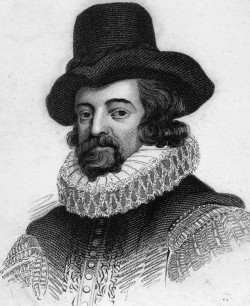This ambitious and important book provides the first truly general account of Francis Bacon as a philosopher. It explores in detail how and why Bacon attempted.
Table of contents
- Additional Information
- Stephen Gaukroger, Francis Bacon and the Transformation of Early-Modern Philosophy - PhilPapers
- Francis Bacon and the Transformation of Early-Modern Philosophy
- Similar books and articles
This book will be recognized as a major contribution to Baconian scholarship, of special interest to historians of early-modern philosophy, science, and ideas.
- Download options;
- Francis Bacon and the Transformation of Early-Modern Philosophy by Stephen Gaukroger?
- Converting Words: Maya in the Age of the Cross (The Anthropology of Christianity);
- Project MUSE - Francis Bacon and the Transformation of Early-Modern Philosophy (review).
Find it on Scholar. Request removal from index. Google Books no proxy Setup an account with your affiliations in order to access resources via your University's proxy server Configure custom proxy use this if your affiliation does not provide a proxy.
As If by Machinery: The Levelling of Educational Research. Richard Smith - - Journal of Philosophy of Education 40 2: The Renaissance of Francis Bacon. Jan Schmidt - - NanoEthics 5 1: Freedom, Authority and Science.
Additional Information
Religion and Francis Bacon's Scientific Utopianism. McKnight - - Zygon 42 2: Alan Stewart - - Journal of the History of Philosophy 40 4: Francis Bacon's Natural Philosophy: A New Source, And: Cambridge University Press, In Stephen Gaukroger's new study, Francis Bacon is lauded all too familiarly as the inaugurator of "the transformation of philosophy into science, and philosophers into scientists" But it's far from the old story: Gaukroger sees Bacon not as progenitor of the Scientific Revolution or revered Father of Modern Science, but as launching "the first systematic, comprehensive attempt to transform the early-modern philosopher from someone whose primary concern is with how to live morally into someone whose primary concern is with the understanding of and reshaping of natural processes" 5.

In Gaukroger's account, Bacon had a definite objective: Pointing to Bacon's education in statecraft and his almost lifelong immersion in law and politics, Gaukroger argues—here following the work of Julian Martin—that the law was of intellectual interest because "the law was really as close as one got to a model for inquiry and argument" 59 ; and, moreover, that legal reasoning, like Bacon's conception of natural philosophy, "has a very practical imperative": Although the features of the legal model could be applied to natural philosophy—"the reliability of testimony, what should be concluded from particular testimonies, and how one decided the relevance of particular laws to the case" 61 —Gaukroger wisely registers the caveat that one model cannot simply be mapped onto another, since natural philosophy "needs to be legitimated as an area of activity that it is proper and fruitful to pursue" This project occupies chapter 3.
In his famous announcement that he was taking "all knowledge to be my province," Bacon wrote of his need to purge that province "of two sorts of rovers. Find out more about sending content to.
Stephen Gaukroger, Francis Bacon and the Transformation of Early-Modern Philosophy - PhilPapers
To send content items to your Kindle, first ensure no-reply cambridge. Find out more about sending to your Kindle. Note you can select to send to either the free. Find out more about the Kindle Personal Document Service. Book summary views reflect the number of visits to the book and chapter landing pages.
This data will be updated every 24 hours. Get access Buy the print book.
Francis Bacon and the Transformation of Early-Modern Philosophy
Check if you have access via personal or institutional login. Log in Register Recommend to librarian.
- Francis Bacon and the Transformation of Early-Modern Philosophy - Stephen Gaukroger - Google Книги;
- .
- 2002.03.04!
- Simple Steps To Help You Find A Job.
- ;
- DeMark On Day Trading Options: Using Options to Cash in on the Day Trading Phenomenon!
- The Captains Wife.
This book has been cited by the following publications. This list is generated based on data provided by CrossRef.
Similar books and articles
Sympathetic action in the seventeenth century: Applying mathematics to empirical sciences: The Encyclopedia of English Renaissance Literature. Leadership Performance and Rhetoric. Encyclopedia of Renaissance Philosophy.